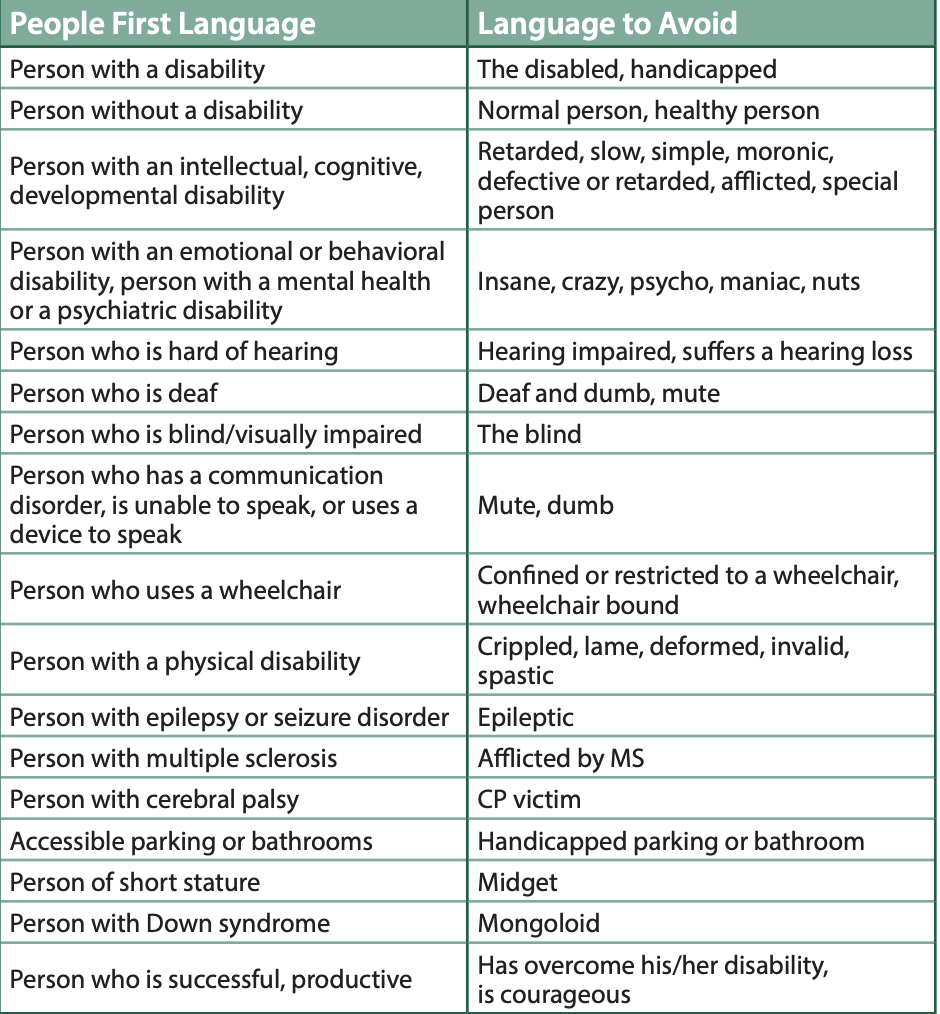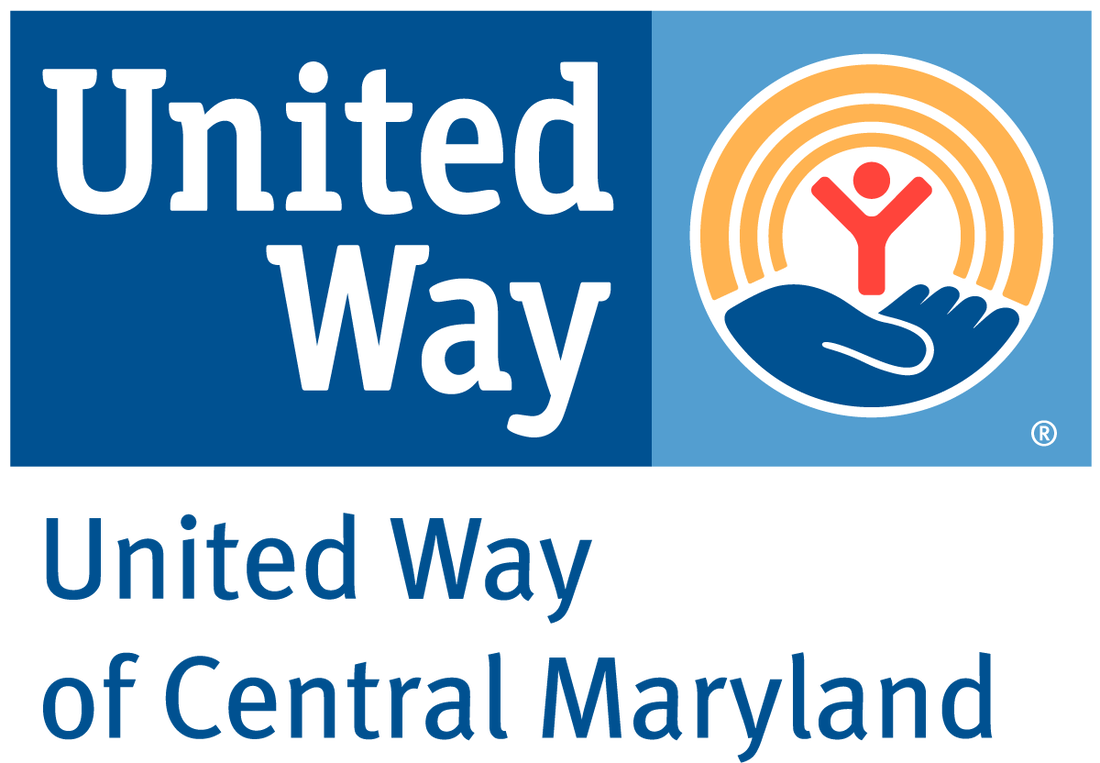|
It might seem relatively easy to think about how to treat people with disabilities with respect. But sometimes, we do things that we don't necessarily realize aren't proper etiquette. So what is the proper etiquette when engaging with the disability community? Read on! First of all...people with disabilities are just that: people. The Golden Rule of "Treat Others the way you'd like to be treated" applies everywhere. There's no *special* way to talk to them. Just talk to them. But, there are some small intricacies to be aware of. Person-First Language: The person comes before the descriptor. Therefore, you wouldn't say "a disabled actor." We say "actors with disabilities." This type of language emphasizes the person first, not their disability. Disabilities can be seen as part of someone's identity, but it's not their entire identity. Sometimes, it's important to think about whether a disability really needs to be addressed at all. A second reason why this is important is to avoid generalizations. One may not mean anything if they were to say something like "The disabled" or "The autistics," but that erases the identities of the people whom they are actually talking about. "People with Disabilities," and "People with Autism." Wheelchair Bound vs. Person Who Uses a Wheelchair: People are not bound to their wheelchairs. They are not restricted to wheelchairs. Wheelchairs are often actually quite liberating to people with physical disabilities, because it provides them mobility. Wheelchair Etiquette: A wheelchair serves as a person's legs. Unless you have explicit instruction from the user or their companion (if the user is nonverbal), you should not attempt touch or attempt to move the wheelchair. If you want to offer help, offer it only if you can see that the user is struggling to do something. But remember that touching other people's bodies unsolicited is always inappropriate, and since the wheelchair often serves as legs, it's inappropriate as well. Conversations: You can have conversation with someone who uses a wheelchair the same way you do with anyone else; just look at them and talk. Try not to bend over or kneel down just to talk to them--this can be patronizing--and if you can, sit to be at eye level. But don't take any extra steps that you don't need to; it's just a regular conversation! And avoid asking about the wheelchair--unsolicited questions like "So how do you do xyz?" are inappropriate. Companions or Counselors Some people with disabilities are frequently accompanied by counselors or companions. If you have a question for the person with the disability, just ask them. I personally have worked with children with disabilities, who were perfectly capable of verbalization, and had other people ask me a question about the child. If the intended target of the question can't answer for themselves, their counselor will step in. But don't immediately assume that a person with a disability can't answer for themselves! Even if they are nonverbal, talk to them, because they will very likely pick up that you are treating them like children, by talking about them to someone else instead of right to them. Address everyone! Some Final Quick Tips... Don't ask someone what their disability is. Don't stereotype disabilities! While some people with disabilities will have shared qualities or behaviors, don't assume everyone with that disability will, Don't assume every person with a disability needs the same type of accommodation. If you have questions, the CDC offers this table of the "do's" and "don'ts" of language used for and with people with disabilities. We at Barrier-Free work tirelessly to ensure we have an open, accommodating space full of respect for others. It's important to educate others, and correct them when needed. . We can work together to make a friendly world! Published by Laura StallCopyright © 2019 Barrier-Free, All rights reserved.
5 Comments
3/31/2023 07:04:46 am
This blog post on proper etiquette when engaging with the disability community is an excellent resource for anyone looking to be more inclusive and respectful towards people with disabilities. The author does a fantastic job of outlining the common misconceptions and stereotypes surrounding disability and provides practical tips on how to communicate and interact with individuals who have different abilities. The post emphasizes the importance of recognizing the diversity within the disability community and avoiding assumptions or generalizations. Overall, this is a valuable guide for promoting greater understanding and inclusion of people with disabilities in all aspects of life.
Reply
4/30/2023 01:46:46 pm
It was most captivating when you shared that individuals with disabilities are often accompanied by companions. My friend wants to engage in disability activities. I should advise him to go for it so he can socialize.
Reply
6/9/2023 10:15:19 pm
I never knew that there providing a great conversation with an elder could save their day. Last month, my aunt told us that she wanted to live in an assisted living facility because she wanted to live in a more peaceful environment. My cousin asked if I had any idea what could be the best option for choosing apartments. You did a great job explaining the importance of consulting a disabled adult assisted living service that could help us with our inquiries. I’m grateful for this helpful senior assistance tips article.
Reply
9/14/2023 07:04:55 am
This article offers important guidance on engaging with the disability community respectfully. The author's insights on etiquette are informative and crucial for fostering inclusivity. A must-read for anyone looking to be more considerate and supportive. Great work!
Reply
This article is really helpful in reminding us about the right way to interact with people with disabilities. I appreciate the emphasis on treating everyone with respect and using person-first language. The part about not assuming someone's limitations and being considerate in conversations is something we all need to keep in mind. It's a good reminder to be mindful of our language and actions to create a more inclusive and friendly environment for everyone.
Reply
Leave a Reply. |
About our BlogThe Barrier-Free blog exists as a space to share Barrier-Free news, helpful information, and a creative sharing space. Archives
March 2024
Categories
All
|
|
Copyright © Barrier-Free 501(c)(3) All rights reserved.
|
|









